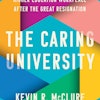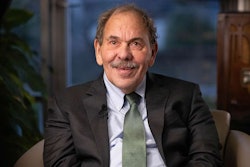Dr. Franklin D. Gilliam, Jr., a member of the University of California Los Angeles’ political science faculty for more than two decades, has been named the new dean of UCLA’s School of Public Affairs, pending approval by the University of California’s Board of Regents. Gilliam is slated to begin Sept. 1.
His first order of business: raising the school’s visibility.
“Thanks to the leadership of [former dean] Barbara Nelson, the school has rapidly risen in the national ranking. I anticipate that we will continue to improve our academic excellence. The School of Public Affairs is only about 10 years old — brand new. We will work to strengthen the identity of the school and to promote our research,” Gilliam says.
Currently, the School of Public Affairs serves 500 graduate students and employs 75 faculty members. It offers master’s degrees in public policy, social welfare and urban planning, and doctoral degrees in social welfare and urban planning.
The school is home to several active research centers that tap the expertise of faculty from across the UCLA campus, addressing such issues as welfare reform, immigration, urban poverty, health care financing, economic development, and an aging U.S. and world population.
Since 2002, Gilliam has served as UCLA’s first-ever associate vice chancellor of community partnerships. In this capacity, Gilliam has supported nearly 150 programs geared towards fostering academic and civic engagement through the Center for Community Partnerships. Building alliances between the university and the community-at-large has been an integral part of the UCLA’s success, Gilliam says.
“UCLA has been quite involved in the Los Angeles community for a great many years,” says Gilliam, noting that the institution hasn’t always been systematic in its engagement. “I’m the only person in the University of California system to hold this title. This is to signal our intent of being serious partners. Over the past five years, we’ve tried to bring UCLA students, faculty and staff together with nonprofit community partners in the county.”
The Center of Community Partnerships allows UCLA researchers to delve deeply into the problems that afflict the local community and enables UCLA personnel to address their own academic interests.
Gilliam plans to make UCLA’s school of Public Affairs a place where students receive a one of a kind learning experience. “One of the advantages of being in Los Angeles is that every issue that afflicts the world is here in L.A.: immigration, transportation, environment, child-welfare,” says Gilliam. “Students will get a global education through the prism of Los Angeles.”
Gilliam has served on numerous boards and is a senior fellow of the FrameWorks Institute and a political analyst for KTLA-TV. In addition to UCLA, Gilliam has taught at the University of Wisconsin, Grinnell College and the University of Dar Es Salaam in Tanzania. His academic expertise has grown to include race and electoral politics, urban politics and development, and the impact of strategic communications on public policy preferences. He is also the founding director of the Center for Communications and Community at UCLA.
“Throughout his UCLA tenure, Frank has built important strategic alliances within the campus and with civic and corporate leaders. He has also maintained strong ties to the philanthropic community, both locally and nationally,” says Dr. Scott L. Waugh, UCLA acting executive vice chancellor and provost.
Gilliam’s appointment follows Dean Barbara J. Nelson’s announcement that she is stepping down as dean after 12 years of service. Dean Nelson will become a faculty member of the Department of Public Policy and continue to direct The Concord Project, which examines how individuals create institutions that work successfully across communities with historic animosities.
“Barbara was brilliant at finding ways to meet the school’s needs in a time of diminishing resources. She was able to keep the books balanced without putting the school in a precarious position. A careful attention to budgets is something that I’d want to model in my own term as dean,” Gilliam says.
Click here to post and read comments
© Copyright 2005 by DiverseEducation.com


















